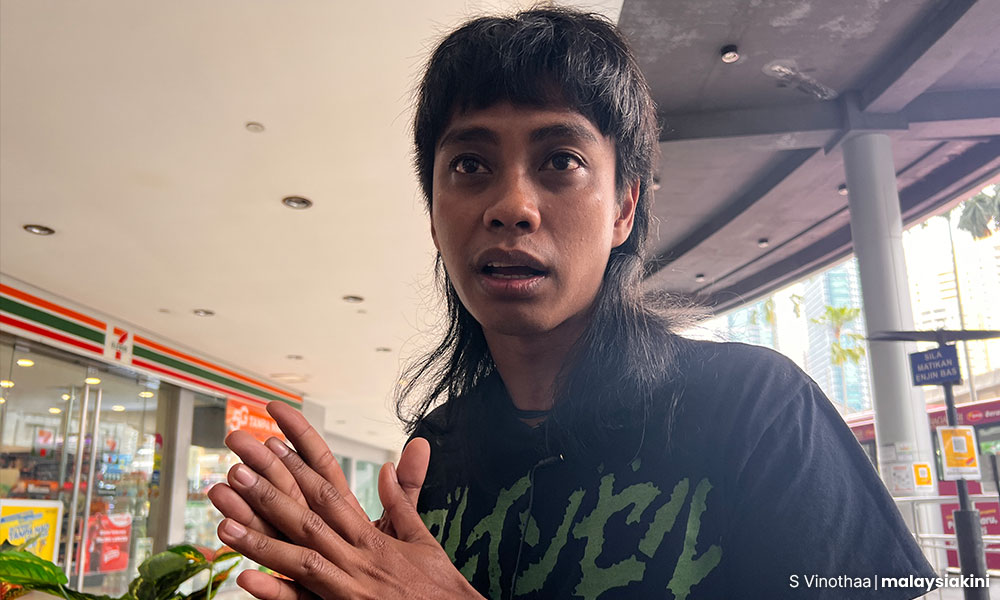Wong Kueng Hui’s triumph after a long and arduous battle for citizenship that spanned 16 years marks a pivotal moment in the fight against bureaucratic hurdles at the National Registration Department (NRD) and he intends to dedicate his life to fighting statelessness.
Posting a heartwarming message on his social media accounts yesterday, with his MyKad in his hand, the 28-year-old is driven by his personal experience to help others facing statelessness.
“I will use my rights as a Malaysian to continue this struggle (against statelessness), for the sake of those who have not yet received recognition,” read his message.
Wong was among the few who were able to challenge the rejection of his MyKad application by the NRD through the courts, and his case provided a landmark ruling at the High Court in 2019 that was upheld right up to the Federal Court in October last year.
The courts upheld his constitutional right as a Malaysian-born who, if not born a citizen of any other country, was entitled under the law to Malaysian citizenship.
This ruling was based on the Second Schedule, Part II under Section 1(e) of the Federal Constitution.
However, his win in the courts did not immediately translate into citizenship despite an order from the country’s highest court as Wong spent the last leg of his struggle clearing additional bureaucratic hurdles pulled out in front of him over the past nine months.
Speaking to Malaysiakini early this year when the NRD expressed intentions to open another round of investigations into his case, the Sabahan believed he was being subjected to a labyrinth of excuses.
Proving his case
Wong, who was born in Keningau Hospital, lost his Sarawakian father when he was 10 years old. His mother of uncertain nationality passed away when he was 17 years old.
In the courts, while abiding by the rule that a child born out of wedlock would follow the mother’s citizenship status, Wong had successfully proved that he had done everything possible to determine the citizenship status of his mother.

This was confirmed by the Indonesian and the Philippines embassies who were unable to determine her as their citizen based on her passport number.
In January 2022, in a 2-1 majority decision, the Court of Appeal ruled that Wong had also fulfilled Article 14(1)(b) of the Federal Constitution (FC).
Following an appeal filed by the government in October 2022, the Chief Judge of Sabah and Sarawak Abang Iskandar Abang Hashim who headed the Federal Court panel said the government’s appeal was unlikely to succeed if the hearing proceeded.
This was seen as a significant conclusion to Wong’s lengthy struggle to be recognised as a Malaysian citizen, which began with his first MyKad application at the age of 12 years.
Bureaucratic choke
“To hear them say ‘I don’t know’ as to the outcome of the court order made me so exasperated.
“It’s a court order. It doesn’t need to be processed. They just need to execute the court order,” he said.
Wong’s assumptions were confirmed to him by the legal adviser to NRD who said the department was supposed to proceed with preparing his documentation based on documents already submitted.
Wong was only able to apply for his MyKad seven months after he served the court order to the department office in Putrajaya.

“At one point, the Putrajaya office kept telling me that they were awaiting instructions from the director,” he said, adding that he also had to bear with the occasional ill manners of some officers.
“People say mine is a precedent case and that I should be happy.
“Yes, I am lucky. While most stateless people cannot afford legal representation, my lawyer took on my case pro bono and I was granted citizenship by the courts.
“But nothing changed,” he lamented.
Wong said he persevered in spite of the choking bureaucracy because he wanted his case to be a solution for everyone who’s going through the same struggle.
Life as a stateless
The notion of his citizenship, which had never crossed his mind before the age of 12 years, suddenly became a painful reality. Wong’s belief that he could aspire to be anything began to crumble, leaving him feeling abandoned.
“My government abandoned me,” he said, recounting the immense challenges he faced in his adolescence.
He shared his experiences of selling burgers at the night market, working in a car wash and toiling in a glass factory. Job opportunities were scarce for a stateless person, and he took on whatever work he could find before eventually relocating to Kota Kinabalu.
Life proved to be just as challenging there where he earned RM500 as a bus conductor riding the city buses from dawn until midnight. He had the additional task of washing the bus at the end of each shift.
Despite the long gruelling hours, Wong knew he was earning 40 percent less than his colleagues and had no social protection. He had to accept the realities of being stateless.
In his adolescence, while other children his age indulged in self-discovery, forming an identity and pursuing parental independence, Wong was trying to make ends meet while staying hidden from the authorities.
Facing numerous obstacles taught him the value of managing expectations.
“If I don’t succeed in something, I will immediately explore other means of addressing it. I will consider what else I can do. But I always expect the worst,” he said.
However, depression caught up with him in Kota Kinabalu as it became increasingly challenging for him to spend time with friends while avoiding the authorities.
Wong discovered solace in the rebellious nature of punk rock music which embraced a non-conformist ethos that challenged corporatism, authoritarianism and consumerist lifestyles.
Breaking down bureaucracy
Reminiscing his situation of having lost both parents at a young age, Wong feels that too much importance is given to documentation like marriage certificates without which the citizenship of the child hangs in the balance.
“I have met and spoken to so many stateless people in East and West Malaysia and have come across all types of cases that can lead to statelessness.
“This has given me an insight into the various ways someone can fall into the stateless trap, and I can identify ways in which these issues can be overcome or even prevented,” he said.
Recognising from a very early age how the politics of the country played an important role in his life journey, Wong said it was his dream to someday be able to make a difference through politics.
“I want to dedicate my life to fighting statelessness and breaking down the bureaucracy in the NRD, especially for the younger generation,” he said. - Mkini




No comments:
Post a Comment
Note: Only a member of this blog may post a comment.